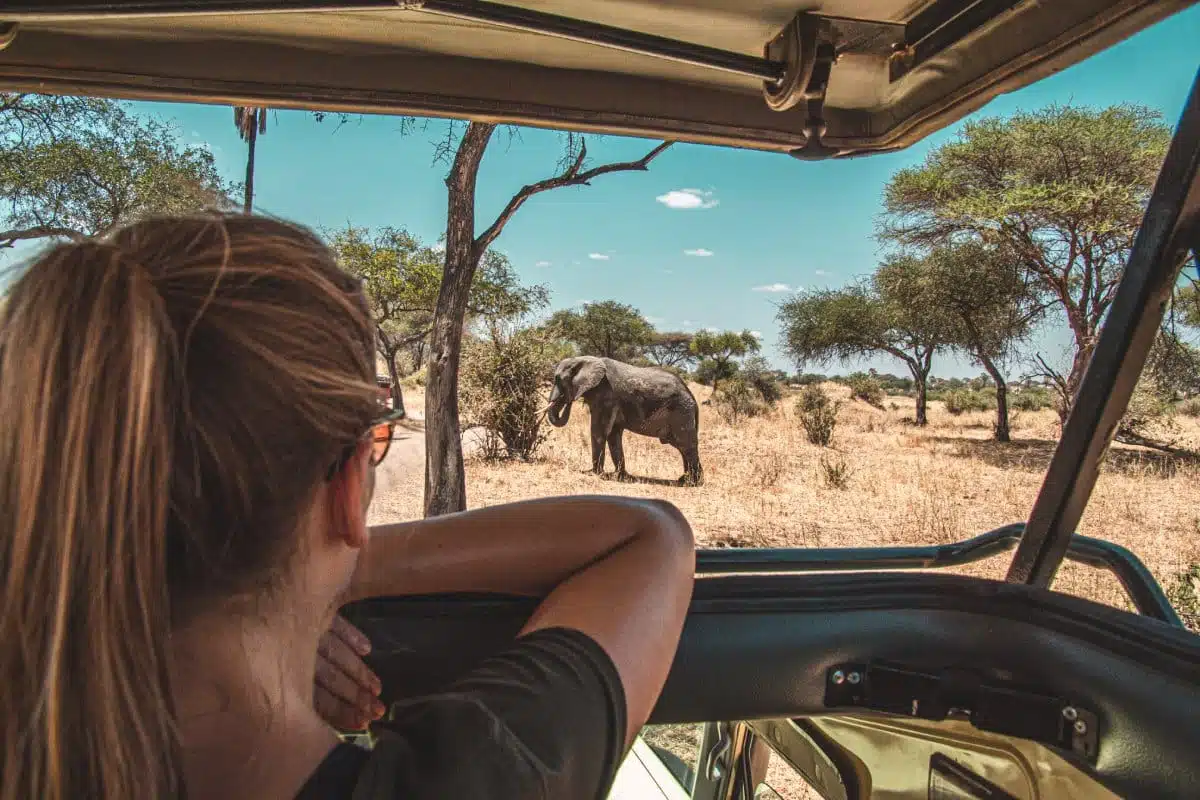Embark on a journey to some of the world’s most remarkable wildlife destinations. This guide takes you across continents to experience the majestic beauty of nature and its inhabitants in their natural habitats. From the African savannas to the icy realms of Antarctica, each destination offers a unique and unforgettable wildlife-watching experience. Whether you’re an avid birdwatcher, a wildlife photographer, or simply a nature enthusiast, these destinations promise encounters with some of the most spectacular wildlife on the planet. Prepare to immerse yourself in the spectacular wonders of the natural world, where each sighting is a story waiting to be told.
1. Serengeti National Park, Tanzania
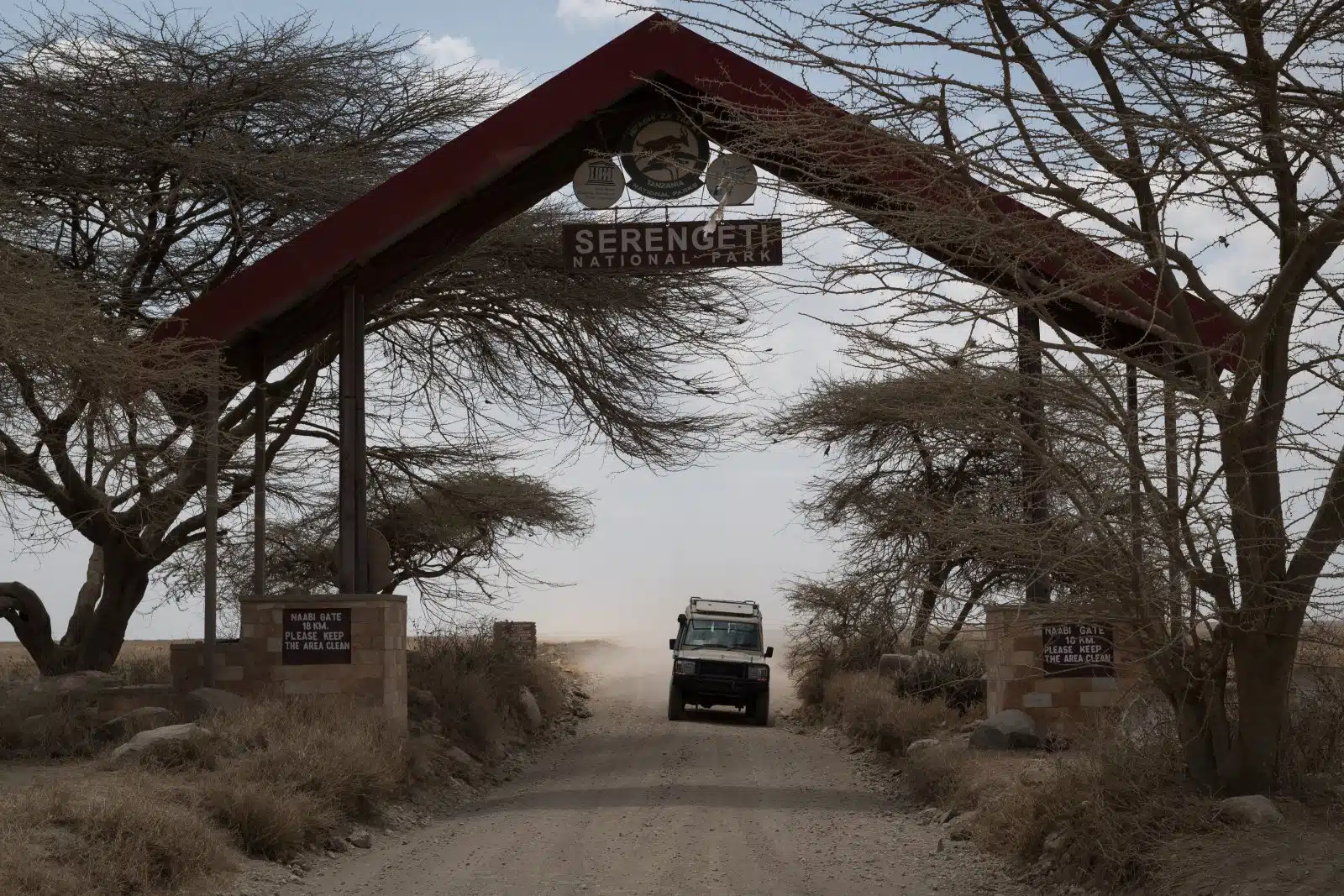
Image Credit: Shutterstock / timsimages.uk
Serengeti National Park in Tanzania is a wildlife enthusiast’s dream, renowned for its annual wildebeest migration – one of nature’s greatest spectacles. Spanning over 14,763 square kilometers, this vast park is home to the “Big Five” (lion, elephant, buffalo, leopard, and rhinoceros). It offers some of the best wildlife viewing opportunities in Africa. The endless plains of the Serengeti come alive with millions of wildebeest, zebras, and gazelles migrating in search of fresh grazing grounds, closely followed by predators. The park’s diverse habitats, including savannah, woodland, and riverine areas, support an incredible variety of wildlife, making every safari an adventure.
Insider’s Tip
Consider a hot-air balloon safari at dawn for a unique view of the migration.
When To Travel
Visit from June to October for the migration; however, the Serengeti offers excellent wildlife viewing year-round.
How To Get There
Fly into Kilimanjaro International Airport and then take a smaller aircraft or a safari vehicle to the park.
2. Galápagos Islands, Ecuador
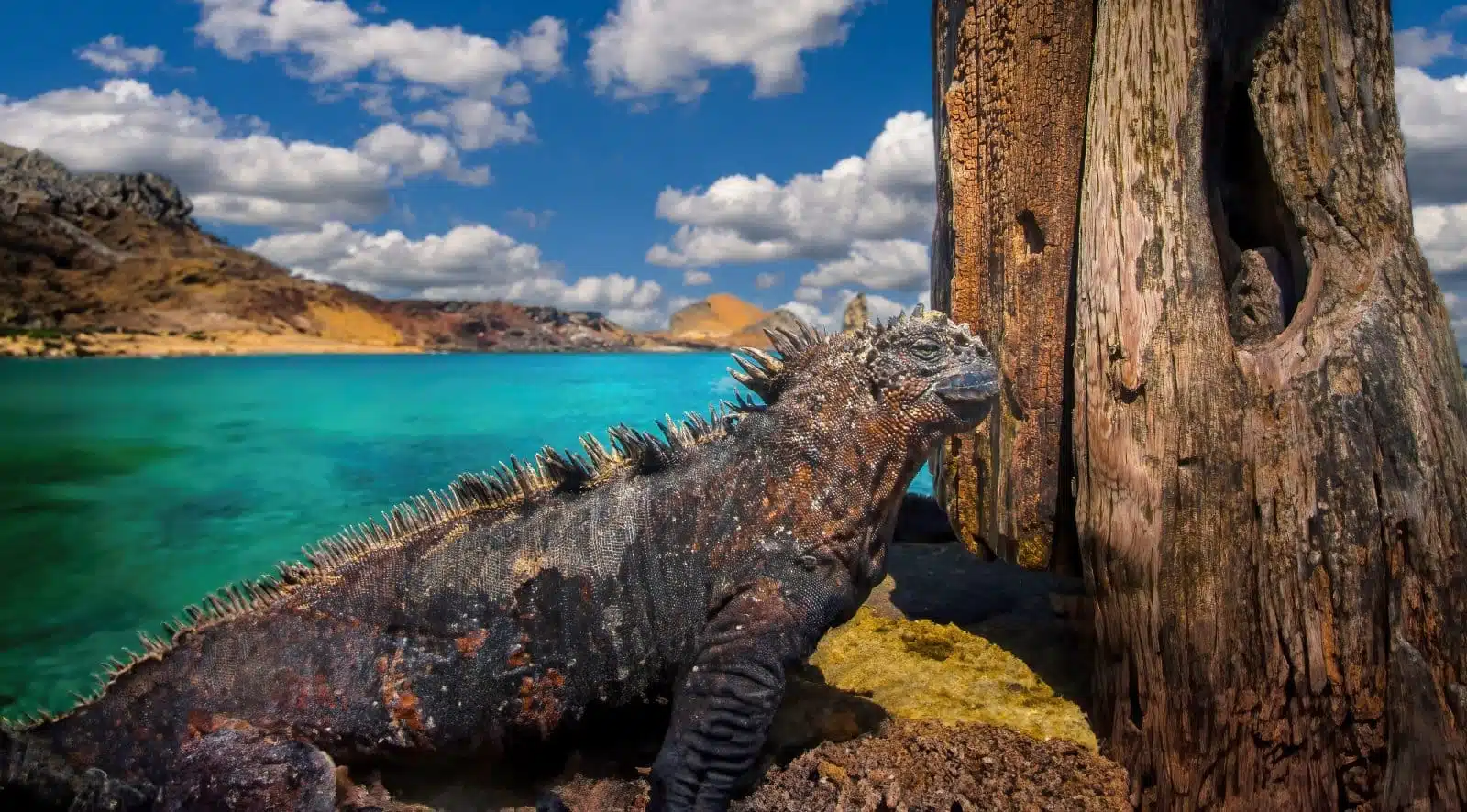
Image Credit: Shutterstock / FOTOGRIN
The Galápagos Islands, an archipelago of volcanic islands straddling the equator in the Pacific Ocean, are a living museum of evolutionary biology. This UNESCO World Heritage site is home to an array of unique wildlife species, many of which are found nowhere else on Earth. The islands offer an unparalleled opportunity to observe and study wildlife in an environment relatively untouched by human influence. From giant tortoises and marine iguanas to blue-footed boobies and Darwin’s finches, the Galápagos Islands provide a unique window into the natural world.
Insider’s Tip
Snorkeling with playful sea lions is a must-do experience in the Galápagos.
When To Travel
Visit from December to May for warmer weather and calmer seas, ideal for snorkeling and diving.
How To Get There
Fly to Quito or Guayaquil in Ecuador, followed by a flight to one of the islands’ airports.
3. Yellowstone National Park, USA
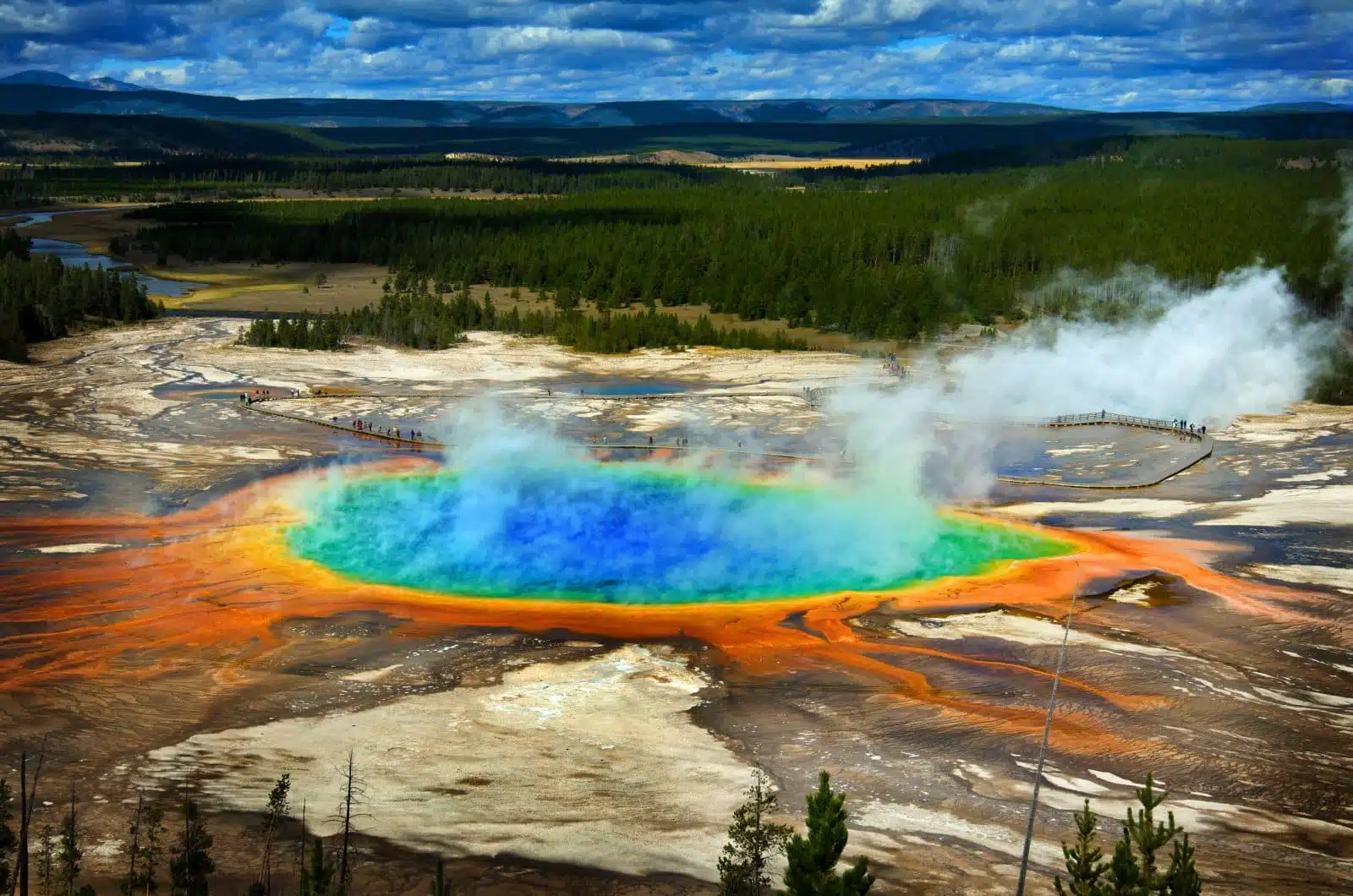
Image Credit: Shutterstock / Lane V. Erickson
Yellowstone National Park, America’s first national park, is a haven for wildlife enthusiasts. The park’s vast and varied landscapes, ranging from canyons and alpine rivers to lush forests and hot springs, are home to an incredible array of wildlife. Here, you can witness the majestic beauty of American bison, elk, grizzly bears, wolves, and bald eagles in their natural habitat. Yellowstone’s geothermal features, including the iconic Old Faithful geyser, add to the park’s allure, making it a must-visit destination for nature lovers.
Insider’s Tip
Visit the Lamar Valley at dawn or dusk for the best chances of spotting wolves.
When To Travel
Spring and autumn offer fewer crowds and excellent wildlife viewing opportunities.
How To Get There
The nearest airports are in Bozeman, Montana, and Jackson Hole, Wyoming, with car rentals available for the drive to the park.
4. Kruger National Park, South Africa
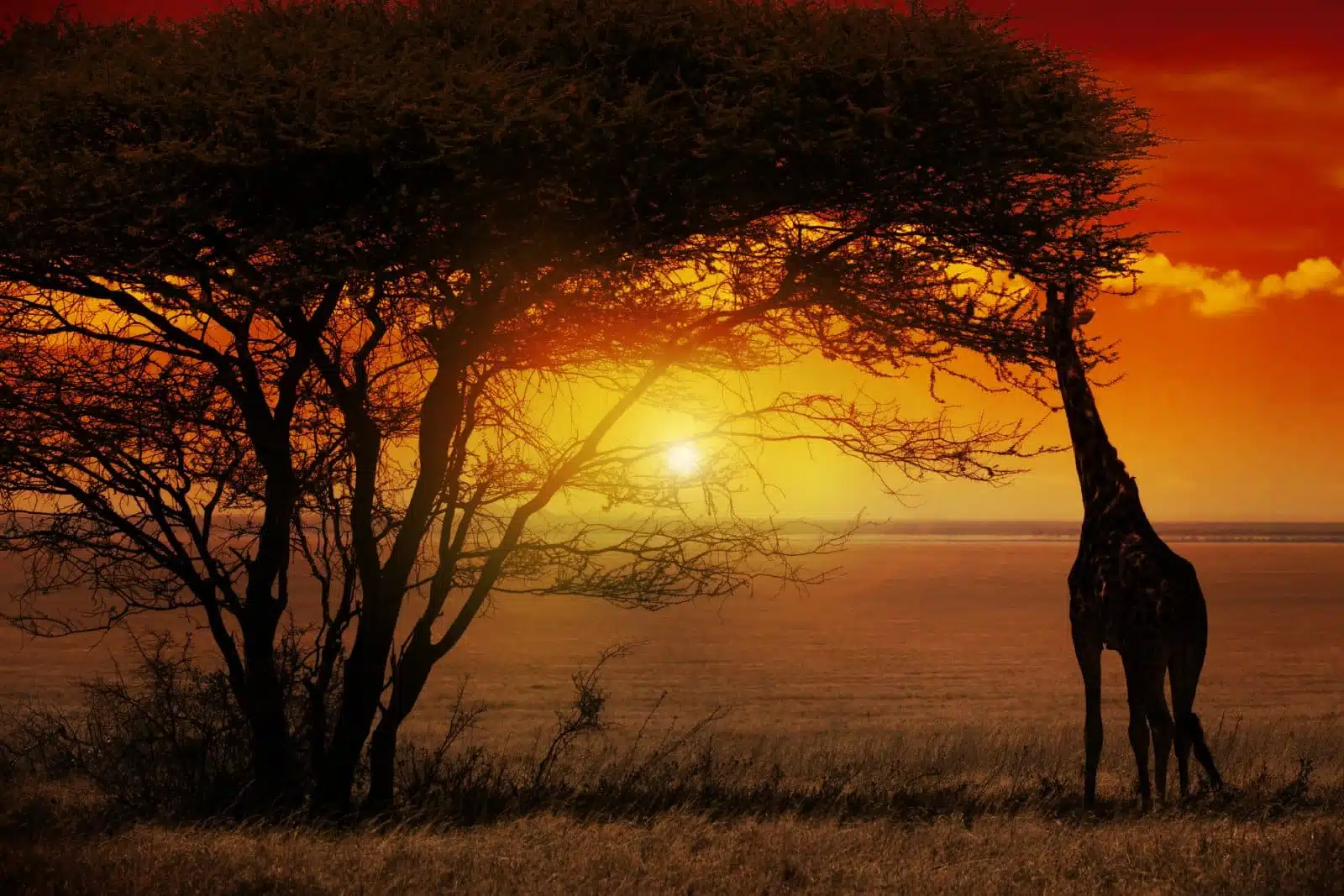
Image Credit: Shutterstock / ndphoto
Kruger National Park, one of Africa’s largest game reserves, offers an unparalleled wildlife viewing experience. The park’s diverse ecosystems support a wide variety of animal species, including the Big Five, cheetahs, hippos, crocodiles, and numerous bird species. Kruger’s well-developed infrastructure, with a range of accommodations from luxury lodges to camping sites, makes it accessible to all travelers. The park’s extensive network of roads allows for self-drive safaris, giving visitors the freedom to explore at their own pace.
Insider’s Tip
Stay at a private lodge for guided safari drives and a more exclusive wildlife experience.
When To Travel
Visit during the dry winter months (May to September) for better wildlife viewing as animals congregate around water sources.
How To Get There
Fly into O.R. Tambo International Airport in Johannesburg and drive to Kruger or take a domestic flight to a nearby airport.
5. Pantanal, Brazil
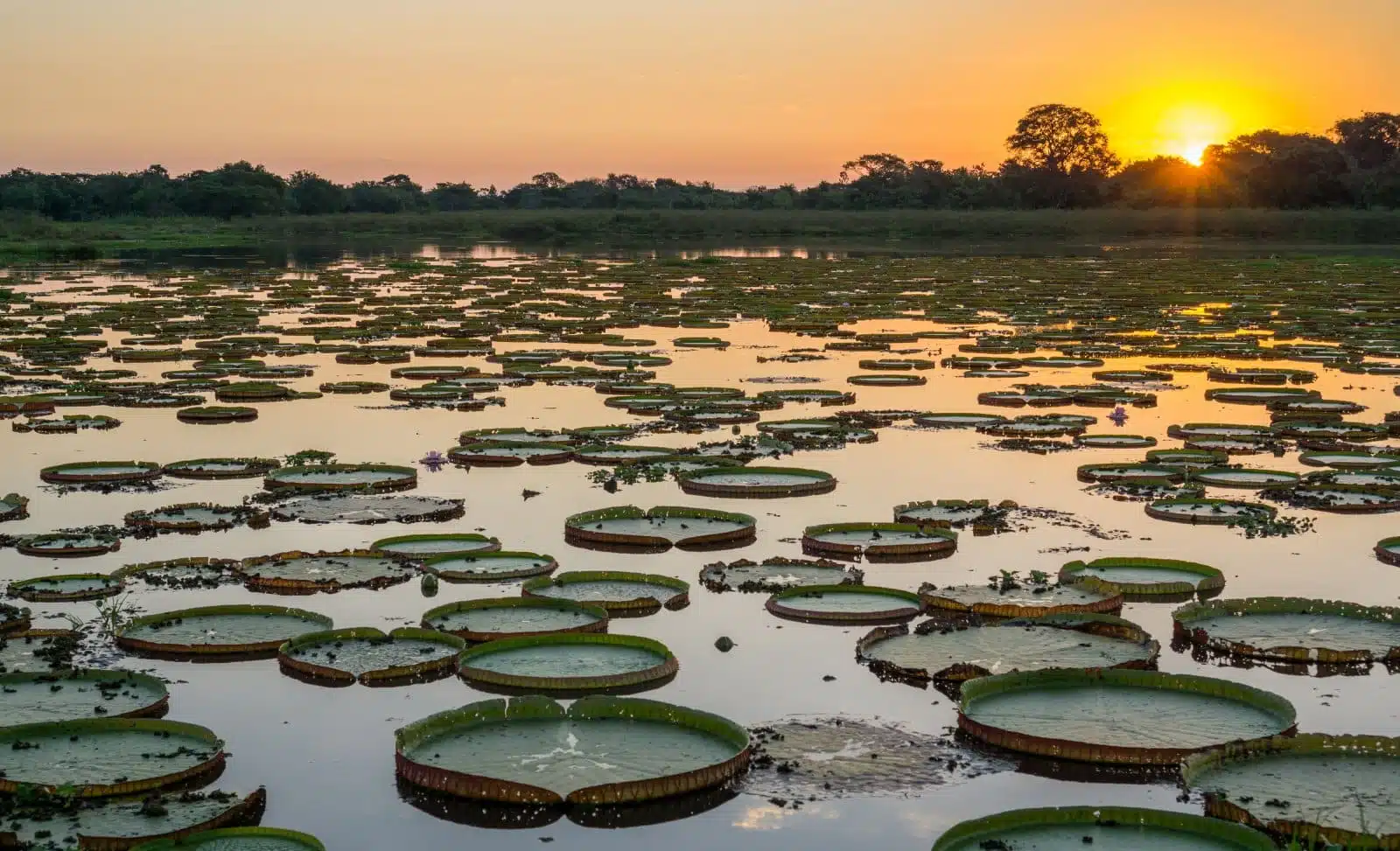
Image Credit: Shutterstock / FCG
The Pantanal, the world’s largest tropical wetland area located in Brazil, is a wildlife-watcher’s paradise. This biodiverse region is less crowded than the Amazon. It offers some of the best opportunities to see jaguars in the wild. The Pantanal is also home to hundreds of bird species, giant otters, caimans, capybaras, and a rich array of flora and fauna. The region’s open marshlands make wildlife spotting easier compared to the dense foliage of the rainforest.
Insider’s Tip
Take a river safari for a chance to see jaguars on the riverbanks.
When To Travel
Visit during the dry season (July to October) for optimal wildlife viewing and access to remote areas.
How To Get There
Fly to Cuiabá or Campo Grande in Brazil, followed by a drive or a small flight to the Pantanal.
6. Borneo, Malaysia and Indonesia
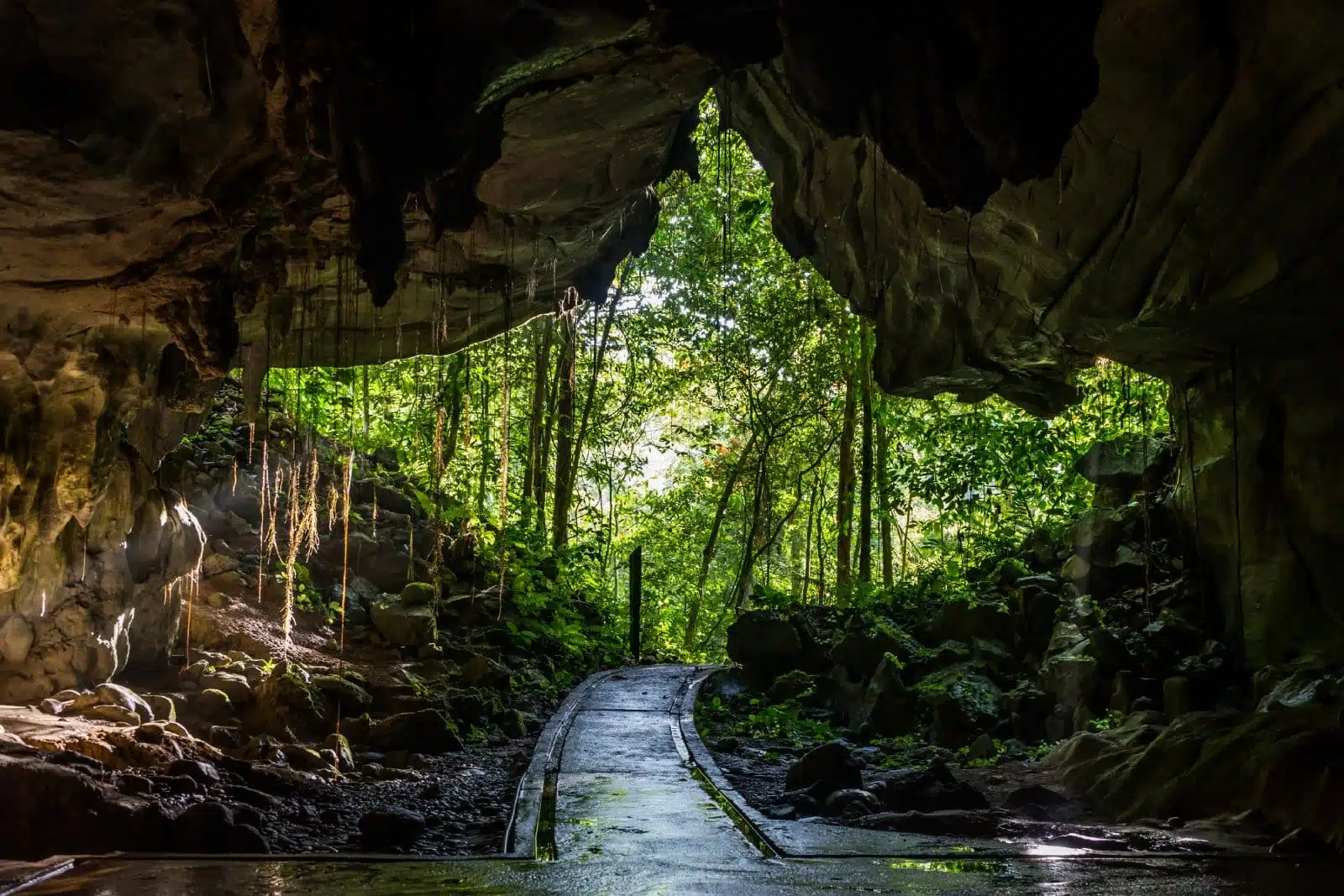
Image Credit: Shutterstock / Marvin Minder
Borneo, the third-largest island in the world, split between Malaysia, Indonesia, and Brunei, is a treasure trove of biodiversity. The island’s rainforests and mangroves are home to unique species like orangutans, pygmy elephants, and proboscis monkeys. Borneo’s conservation areas, such as the Kinabatangan River and Danum Valley in Malaysia and the Tanjung Putting National Park in Indonesia, offer incredible opportunities to witness these rare species in their natural habitat.
Insider’s Tip
Visit rehabilitation centers like Sepilok Orangutan Rehabilitation Centre to learn about conservation efforts.
When To Travel
Visit during the dry season (March to October) for easier access to rainforests and better wildlife viewing.
How To Get There
Fly to Kota Kinabalu (Malaysia) or Balikpapan (Indonesia) and connect with local transport to conservation areas.
7. Madikwe Game Reserve, South Africa
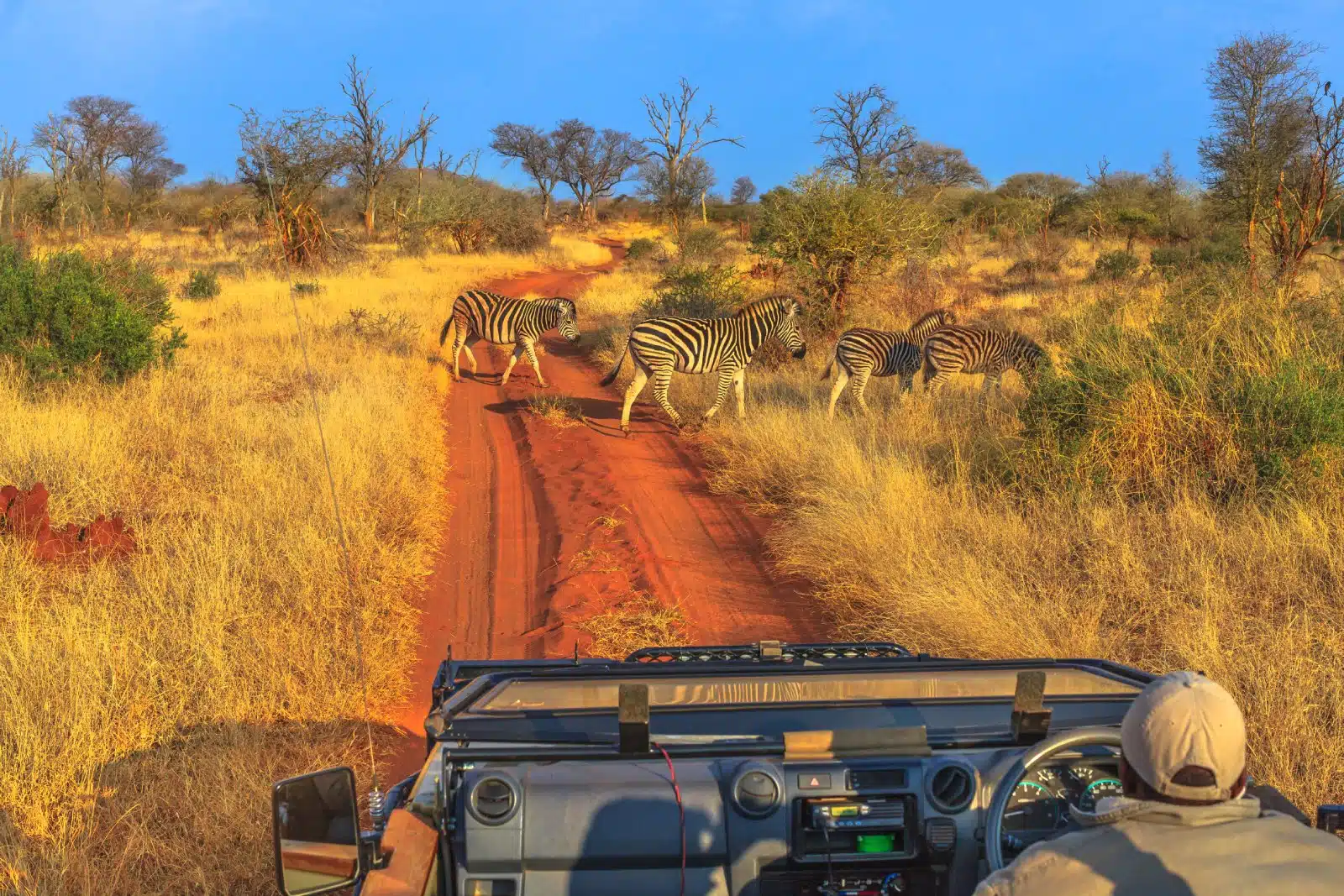
Image Credit: Shutterstock / Benny Marty
Madikwe Game Reserve, a hidden gem in South Africa, is one of the lesser-known safari destinations, offering an exclusive and crowd-free wildlife experience. This malaria-free reserve is home to the Big Five and is particularly known for its wild dog population. The diverse landscape of woodlands, rocky hills, and open grasslands provides a stunning backdrop for game drives and wildlife photography.
Insider’s Tip
Opt for a luxury lodge within the reserve for guided game drives and nocturnal safaris.
When To Travel
Visit from May to September during the dry season for the best wildlife sightings.
How To Get There
Fly to Johannesburg and take a charter flight or a scenic drive to the reserve.
8. Ranthambore National Park, India

Image Credit: Shutterstock / Sourabh Bharti
Ranthambore National Park, located in the Indian state of Rajasthan, is one of the best places to see Bengal tigers in the wild. The park’s rugged terrain, dotted with ancient ruins, provides a dramatic setting for wildlife viewing. Apart from tigers, Ranthambore is home to leopards, hyenas, sloth bears, and various bird species. The park’s historic landmarks, including the majestic Ranthambore Fort, add a cultural dimension to the wildlife experience.
Insider’s Tip
Book a safari in one of the park’s core zones for a higher chance of tiger sightings.
When To Travel
Visit between October and June, with April and May being the best months for tiger sightings.
How To Get There
Fly to Jaipur and then drive to Ranthambore, or take a train to Sawai Madhopur, the nearest railway station.
9. Great Barrier Reef, Australia
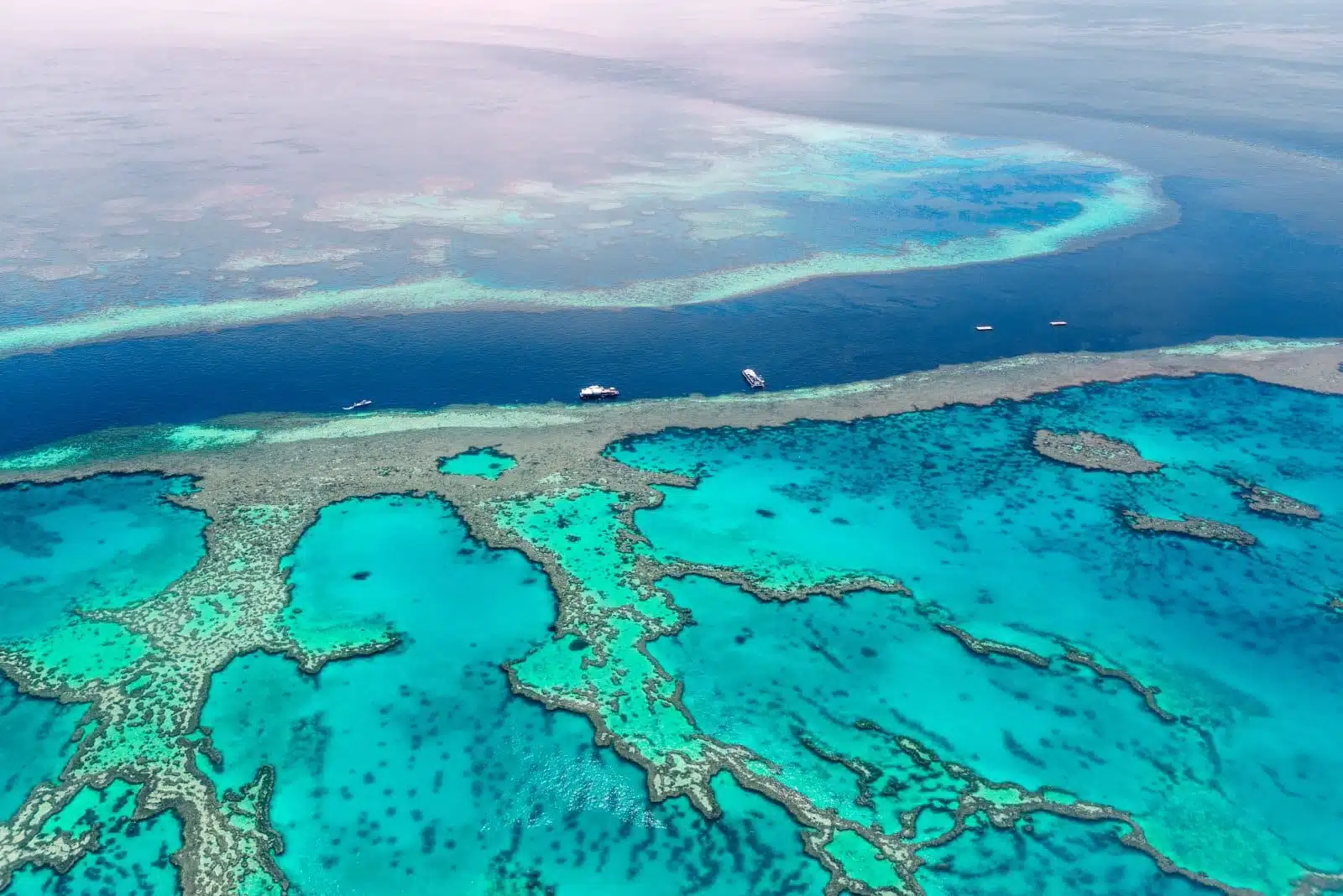
Image Credit: Shutterstock / superjoseph
The Great Barrier Reef in Australia is the world’s largest coral reef system and a haven for marine life enthusiasts. This UNESCO World Heritage site offers some of the best snorkeling and diving experiences, with a chance to see a dazzling array of marine species, including colorful corals, fish, turtles, and sharks. The reef’s immense size and beauty make it a crucial and awe-inspiring representation of Earth’s natural wonders.
Insider’s Tip
Visit the outer reef for less crowded and more pristine diving spots.
When To Travel
June to October provides great visibility and pleasant weather for diving and snorkeling.
How To Get There
Fly to Cairns or Townsville, where numerous tours to the reef are available.
10. Volcanoes National Park, Rwanda
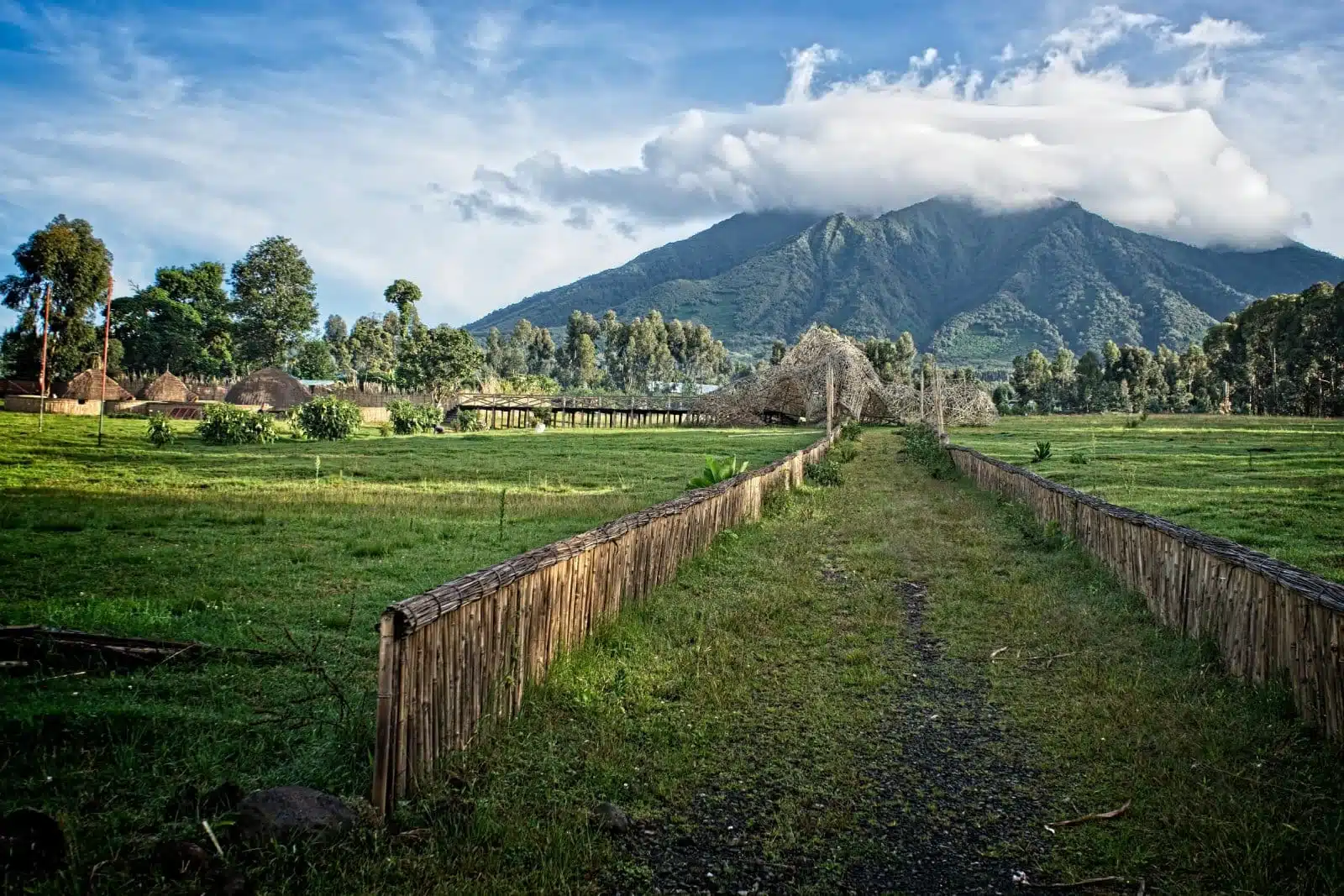
Image Credit: Shutterstock / Radzimy
Volcanoes National Park in Rwanda offers one of the most profound wildlife experiences – mountain gorilla trekking. Nestled in the Virunga Mountains, this park is one of the few places in the world where you can observe these magnificent creatures in their natural habitat. The experience of coming face-to-face with a mountain gorilla is both humbling and exhilarating, providing an intimate glimpse into the lives of these gentle giants. Besides gorillas, the park is also home to golden monkeys, numerous bird species, and rich biodiversity.
Insider’s Tip
Book your gorilla trekking permit well in advance, as they are limited and highly sought after.
When To Travel
Visit during the dry seasons, from June to September and December to February, for easier hiking conditions.
How To Get There
Fly to Kigali, the capital of Rwanda, and then drive to Volcanoes National Park, which is about a 2-hour journey.
11. Svalbard, Norway
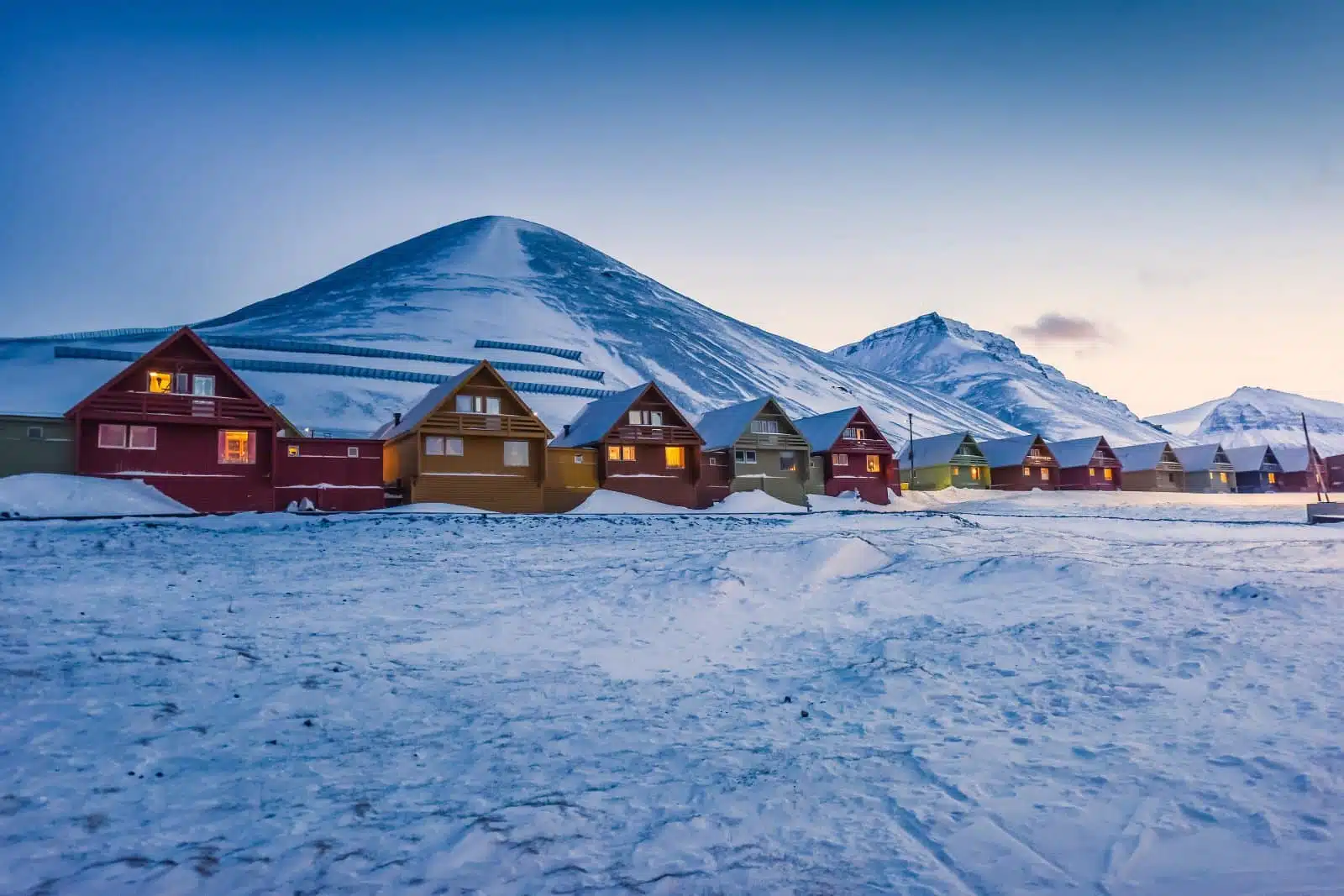
Image Credit: Shutterstock / ginger_polina_bublik
Svalbard, a Norwegian archipelago in the Arctic Ocean, is a destination for those seeking a unique wildlife experience in a polar setting. This remote wilderness is a prime location for viewing polar bears in their natural icy habitat. The archipelago’s dramatic landscapes of glaciers and frozen tundra are also home to Arctic foxes, Svalbard reindeer, walruses, and many seabirds. Svalbard offers an otherworldly experience, where the midnight sun and the northern lights add to the ethereal beauty of wildlife watching.
Insider’s Tip
Opt for a small-boat expedition to increase your chances of encountering polar bears and to access more remote areas.
When To Travel
Visit from June to September when the ice recedes, allowing better access by boat.
How To Get There
Fly to Longyearbyen, the largest settlement in Svalbard, via Oslo or Tromsø in Norway.
12. Kangaroo Island, Australia
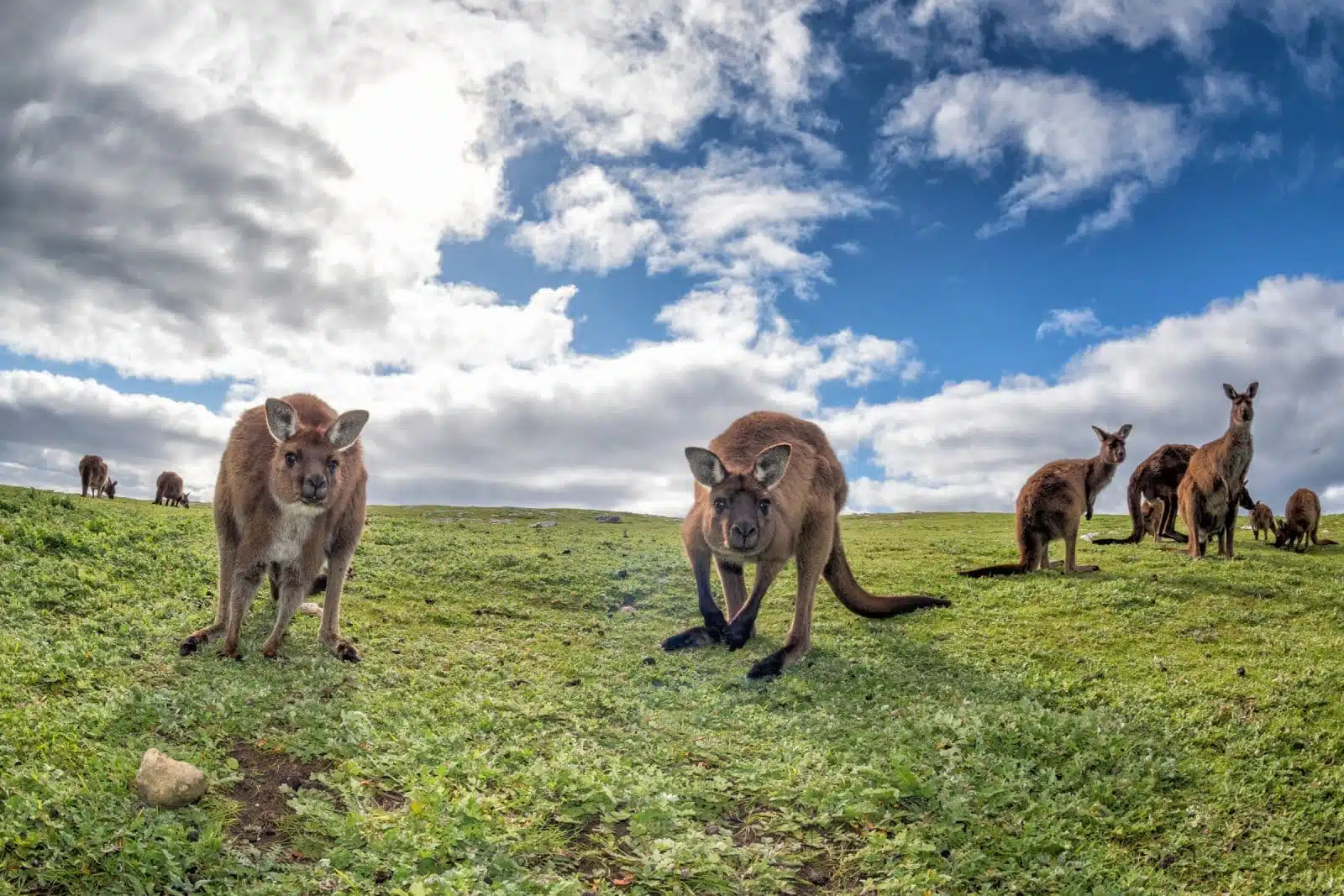
Image Credit: Shutterstock / Andrea Izzotti
Kangaroo Island, off the coast of South Australia, is a haven for wildlife enthusiasts and is often referred to as Australia’s Galápagos. The island offers an abundance of wildlife, including kangaroos, koalas, echidnas, and diverse bird species. It also boasts stunning natural scenery, from pristine beaches to rugged cliffs. The conservation efforts on the island have made it a sanctuary for native Australian wildlife, providing visitors with an authentic and sustainable wildlife-watching experience.
Insider’s Tip
Join a nocturnal tour to see the island’s wildlife, including penguins and possums, in their active state.
When To Travel
Visit from September to November for mild weather and to see a wide range of wildlife.
How To Get There
Fly to Adelaide and then take a short flight or ferry to Kangaroo Island.
The Bottom Line
Your journey to these spectacular wildlife-watching destinations worldwide promises close encounters with some of the planet’s most fascinating creatures but also an insight into the beauty and complexity of nature. These destinations provide a window into our world’s diverse habitats and ecosystems, from the African savannahs to the icy Arctic and tropical rainforests. As you plan your wildlife-watching adventure, remember that these experiences allow you to see animals in their natural environment and understand and respect the delicate balance of our planet’s ecosystems. So, pack your binoculars, set off on your journey, and prepare to be amazed by the wonders of the wild.
More From The Green Voyage
12 Best Practices for Sustainable Travel in 2024 – How to Travel With Minimal Environmental Impact
Unlocking Hotel Perks – A Traveler’s Guide to Maximizing Hotel Reward Programs for Optimal Benefits
Travel Hacks for Frequent Flyers – 6 Tips and Tricks to Make the Best of Air Travel
The post The 12 Best Places for Wildlife Watching in the World – Where to See the Most Spectacular Wildlife first appeared on The Green Voyage.
Featured Image Credit: Shutterstock / Philipp Spatzl Fotografie.
For transparency, this content was partly developed with AI assistance and carefully curated by an experienced editor to be informative and ensure accuracy.
